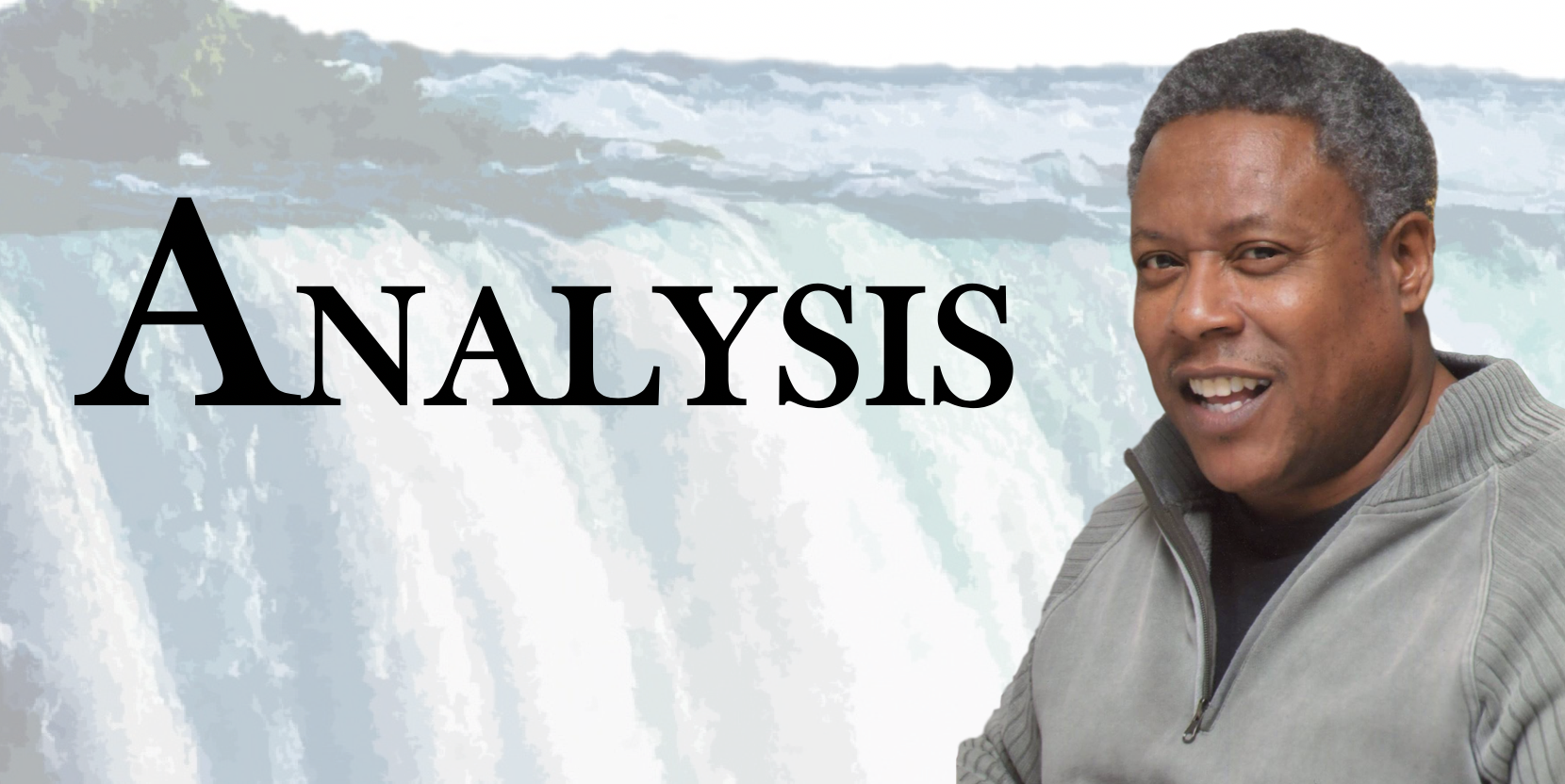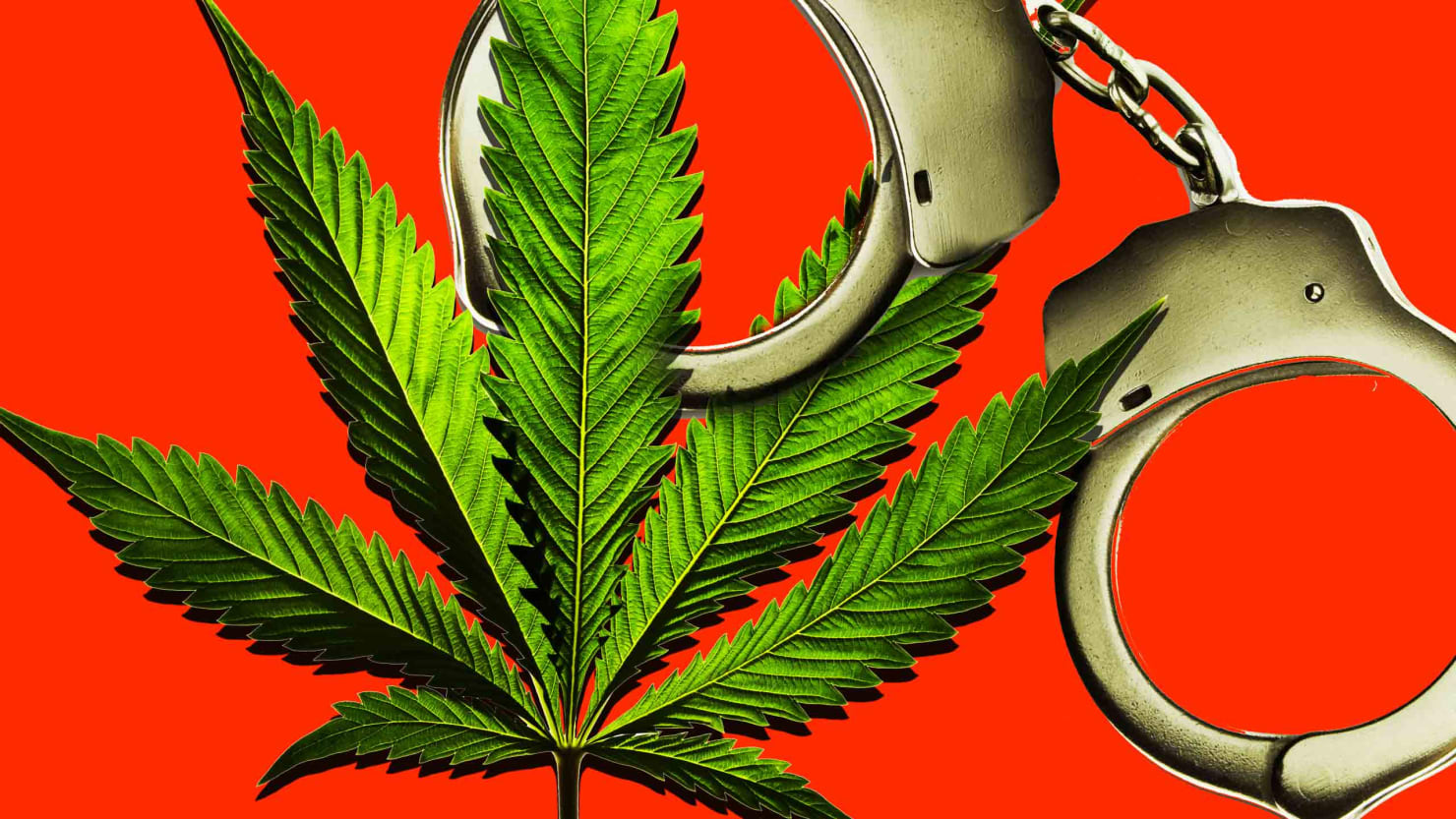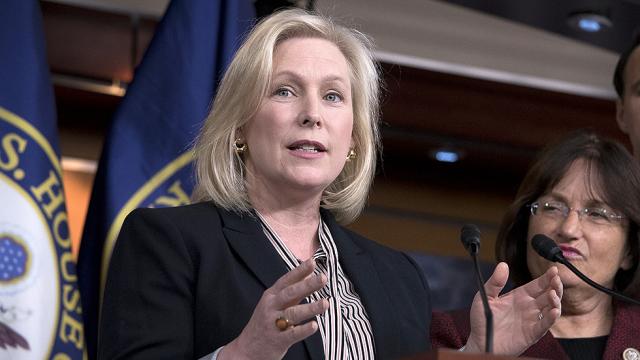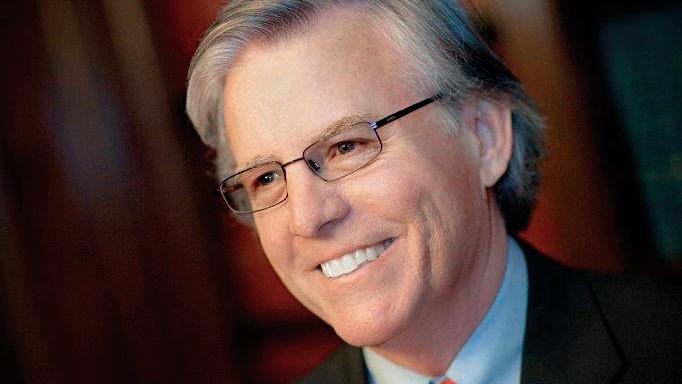Please click the link below to subscribe to a FREE PDF version of each print edition of the Niagara Reporter
http://eepurl.com/dnsYM9
Gillibrand Stokes Misunderstanding of Marijuana Prosecution Disparities
 NY Federal Senator Kristen Gillibrand arrived in Buffalo this week and, in a beaming voice, she promoted New York’s move to legalize recreational marijuana; but all that I heard was the baritone voice of the ghost of Reagan whispering, “I’m from the government. I am here to help you (black people).” She said that though whites and blacks are proportional users of marijuana, blacks are four-times more likely to be arrested and jailed for it.
NY Federal Senator Kristen Gillibrand arrived in Buffalo this week and, in a beaming voice, she promoted New York’s move to legalize recreational marijuana; but all that I heard was the baritone voice of the ghost of Reagan whispering, “I’m from the government. I am here to help you (black people).” She said that though whites and blacks are proportional users of marijuana, blacks are four-times more likely to be arrested and jailed for it.Many politicians are out of touch with the root cause of the usage issue; and it’s not because they’re white; it’s because, like Buffalo’s black Assemblywoman Crystal Peoples-Stokes, they’re politicians. Peoples-Stokes represents one of upstate’s most repressed districts, and she has reportedly been working on the legalization for years.
Gillibrand couched her well-intentioned but political remarks by suggesting that the legalization would be good for NY’s African-Americans. Does she really think that marijuana is the reason why blacks are arrested? Even if legal, blacks will still being arrested at more than 4 -times the white rate for doing something else while under the influence of the drug.
Furthermore, the following factors must also be considered:
EDUCATION
In a widely circulated video, Cassandra Pinkney, the founder of a Washington DC-area public school, with several years of marijuana legalization under their belts, warned parents of school-aged children to not smoke pot around students.
In her school that takes in children between preschoolers and 3rd graders, she warned of children’s 2nd-hand exposure to marijuana smoke, citing the emotional state that the children find themselves in school, as well as their lack of attentiveness.
Pinkney makes a stark comparison between alcohol and marijuana use by saying, “If you were drinking in your home and your child went to reach for an alcoholic drink, you would say, ‘No don’t do that, that’s not for you.’ ” She went on to say, “A child has no choice from inhaling the smoke of a marijuana cigarette, and so you are exposing your child to dangers and things that they are not able to handle.”
Pinkney’s statement is consistent with a report the was put out by the DC Department of Health’s Center for Policy, Planning and Evaluation – Behavior Risk Factor Surveillance that found that marijuana use has been associated with a decline in IQ when regularly used among individuals under the age of 18. While elementary-aged children don’t put the marijuana up to their lips, they certainly inhale it when their parents often smoke it around them. One would imagine that teenagers don’t smoke illegal marijuana around younger children for fear of being told-on, but given legalization, all of that might change. For older students, the report did cite that “short term marijuana-related effects can include cyclic vomiting, disorientation, impaired body movement, increased heart rate, and difficulty thinking or problem-solving. Who wants their child taking an exam under these circumstances?
The report went on to say that:
• Marijuana was the second most commonly detected drug in traffic accidents that resulted in fatalities, District of Columbia in 2012; and,
• There is some evidence that marijuana use may increase cancer risk.
Here’s one of interest: as we try to get the guns out of the homes that harbor troubled students, the DC report also cites that “among individuals at risk for mental illness, marijuana use may worsen symptoms.”
It goes on to say that:
• 8.9% of marijuana users will transition from casual use to dependence.
• Cigarette use and binge drinking are significantly higher among marijuana users than non users.
• Marijuana use among expecting mothers has demonstrated various adverse effects, including low birth weight and pre-term delivery; and, finally,
• Throughout the U.S., marijuana possession arrests tend to occur significantly more among African Americans than any other race/ ethnicity despite rates of use are fairly similar across all categories.
Good argument can be made that the use of marijuana isn’t at the root of all of the above symptoms, as other issues also can cause such results. But isn’t it also fair to say that so much of what African-American’s are exposed to can also lead to behavior that predisposes us to be in over-policed situations, and that marijuana isn’t the root cause of the arrests, it is just the gateway that attracts the attention and through which the police often go to affect the arrest?
Good argument can also be made that if legalization would reduce the arrests of African-American users, it still won’t improve the conditions that lead blacks to those root cause issues that gives the urge to smoke. Therefore, one could only assume that its intent is to make inner-city denizens comfortable where they are, and not bother the Narcan-dispensing first responders.
EMPLOYMENT
The US Department of Labor and major news outlets are reporting that black unemployment is now lower than it has been in nearly 2 decades; but can that trend continue if recreational marijuana becomes legal. Marijuana us can only reduce employment opportunities for many Americans.
For critical jobs, the state cannot restrict employers from screening out potential employees based upon its usage. As blacks are used as the panthers of pity in the propaganda of helping to reduce the volume of our arrests, will black Americans also be 4X more likely to be screened out of employment opportunities after legalization? Even after attaining a job, due to the neighborhoods – like those of Assemblywoman Peoples-Stokes’ East-side of Buffalo – blacks still have to return to the environment where there will be even more marijuana use, and it will be used by many of the worker’s unemployable friends. The attitude already is that marijuana isn’t a drug – but it will remain as such for many employees. Failure to overcome peer pressure could also mean failure to make next month’s bill payments.
Take the following case of all other factors being equal:
An enviably handsome young African-American man sees what he considers to be a well-connected grandfatherly community member and asks whim if he could help him to get a job. The man asks the young fellow a series of questions. “Did you finish high school?” The young man impresses his potential mentor by proudly relaying that he graduated on the honor roll with a New York State Regents Diploma.
The man asks if he can pass a background investigation, and again is pleased with the young fellow’s response. “Oh, yes,” he says with confidence, “I don’t have a criminal record.”
Now, almost anxious to help what would be an inner-city prodigy, destined for success, the man confidently asks his last question. “And you stay away from drugs, right?”
”Oh, yes,” said the young smiling prospect. “I don’t use drugs.” But here’s where it all falls apart. “I only smoke weed on the weekends.”
“I’m sorry,” said the old fellow. “I can’t help you.” And the young man lowered his head in disappointment, turned and walked away – and the old fellow sadly did likewise.
With the lower employment rates of black Americans, legalization likely makes for more arrests, not less.
HOUSING
How will the legalization of marijuana impact apartment and condominium dwellers and their children? While the US Dept. of Housing and Urban Development has strict ‘no smoking’ policies on occupants, nonetheless, it still goes on. While one parent in one apartment may be opposed to their children being exposed to even cigarette smoke, without the fear of arrest, to how much debilitating marijuana smoke will they be exposed after legalization; and what is their relief, even in privately-paid rental units?
POLITICS
Peoples-Stokes glowed over her bill, saying that it might bring millions more dollars into the state’s coffers; but she and others ought to yield to Founder Thomas Jefferson’s words concerning “government being slow and deliberate.”
A slaveholder himself, Jefferson was well aware of how easily government could enslave its citizens, warning them not to be too hasty in passing legislation. Take the case of 2 prominent NY politicians, Governor Nelson Rockefeller and then-Assemblyman Charles Rangel.
Rangel went on to become a long-serving NYC congressman, but he entered into politics in the mid-1960s at a time when Harlem was being overrun by heroin. This concerned Rockefeller and many black politicians, much as politicians are concerned by the opioid crisis today. Rockefeller had aspirations for the presidency, and with growing political pressure from NY’s politicians, he was urged to take a strong stand on the drug issue. Given Rangel’s later strong support for President Nixon’s 1970s “War on Drugs”, one would have to presuppose that he had an antithetical hand in Rockefellers’ earlier “quick and non-deliberated” one.
But to Rockefellers’ credit, the liberal Republican initially wanted to treat the Harlem crisis as a mental health issue, offering treatment and counseling to those so afflicted. In both cases, Rockefeller and Nixon, Rangel was a central character, a character who would later rail against the non-solution of which he once supported and may have initiated.
Seemingly, the pendulum has swung in the opposite direction, carrying with it the parties that had always ridden upon it. The difference is merely moral. Whereas in the past, politicians wanted to rid their communities of drugs; today, politicians, like Peoples-Stokes, seemingly want to profit from the introduction of more drugs into the community, without first fixing the broken community and the broken people that live there – her own constituents. Shades of Iran-Contra!
Before we go too far into the weeds in this legalization, perhaps we need to stop and take a deep, deep breath and think this thing all of the way through. Will it be the mirror-image of the Rockefeller/Nixon war on drugs, and yield yet the same regrettable results for those who are so much like those upon which the original war was targeted? And in the end, will it be déjà vu, its 1972 moment all over again?























